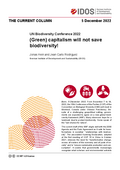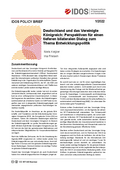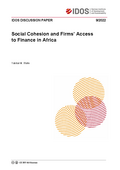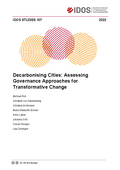-

Publications
Photo: www.shutterstock.com/de/image-photo/pont-du-gard-old-roman-aqueduct-45688924
Publications
The German Institute of Development and Sustainability (IDOS) publishes four independent publication series. IDOS researchers publish their current research results in Discussion Papers, Policy Briefs and Studies. Visiting scholars and cooperation partners also have the opportunity to publish their research results in one of the IDOS series. Publications from the series Analysen und Stellungnahmen, Briefing Paper and Two-Pager / Zweiseiter, which will be discontinued in 2022, will continue to be available online. The fourth publication series is for opinion pieces: The Current Column regularly comments on the latest developments and issues in international development policy.
IDOS researchers also regularly publish their research results in peer-reviewed and non-peer-reviewed German and international journals and publication series of other research institutes and institutions as well as with renowned book publishers. In addition, they use blogs and online platforms of partner institutions to communicate the Institute's research and advisory activities to an interested public.
Found 9409 results in 9 milliseconds. Displaying results 3691 to 3700 of 9409.
-
Microinsurance in Western Asia
-
G-7: a turning point in climate policy or empty words?
-
Migration to Europe – is North Africa Europe's boarder guard?
-
The G-7 and the post-2015 process: role and deliverables
-
The fragile road towards peace and democracy: insights on the effectiveness of international support to post-conflict Burundi
-
Let’s walk our talk: from the July 2015 Financing for Development Conference in Addis Ababa, Ethiopia, down the Road to Dignity by 2030
-
Burundi – on the brink of escalation?
-
INDCs: A silver bullet for the climate negotiations, or empty talk?
-
Lange ein Tabuthema
-
It's all about the green stuff: finance gap threatening biodiversity















